How to Increase Serotonin: Your Ultimate Guide to Boosting Serotonin Naturally


Serotonin is a monoamine neurotransmitter that sends messages between nerve cells and the body.
Serotonin production plays an essential role in many functions and processes, including sleep, digestion, bone health, and much more.
With the nickname of the “happy” chemical or the “happy hormone”, serotonin also has a vital role in a person’s mood and well-being.
Serotonin’s importance in both body and brain functions makes it an important brain chemical to be aware of, as changes in serotonin levels can impact your health.
A balanced level of serotonin in the neurons and body regulates many processes in the body and brain, but when serotonin levels are too little or too high, the effects can become harmful.
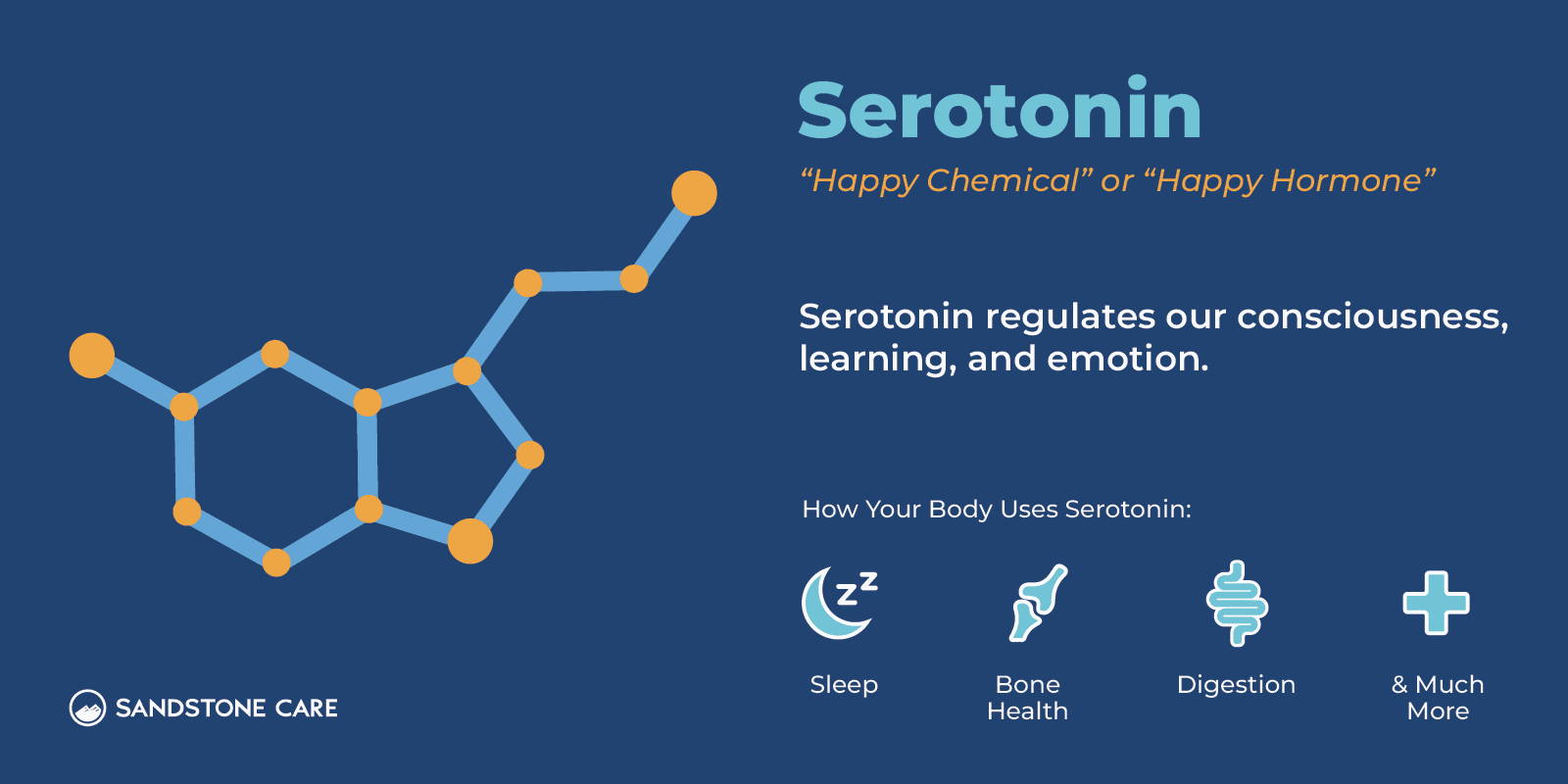
Serotonin is widely known as a brain neurotransmitter, yet it is estimated that 90% or more of its production takes place in the GI tract, according to the Handbook of Experimental Pharmacology.
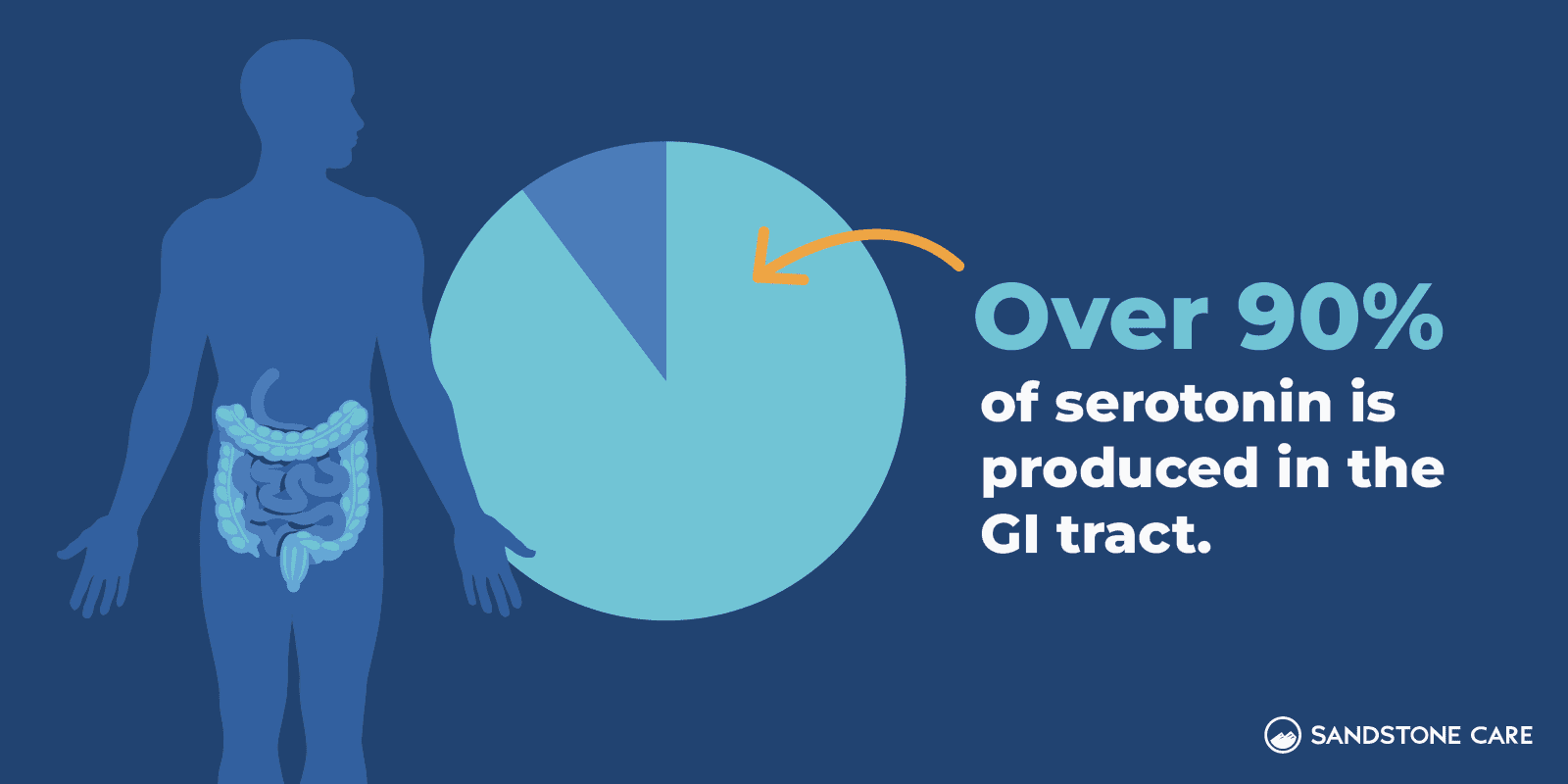
When serotonin levels are balanced, they have a positive impact on a person’s mood and emotions.
Low serotonin levels are widely known for their association with depression and low moods.
Balanced serotonin levels can promote healthy sleep, balance hormones, regulate body temperature and breathing, promote healthy intestine function, promote bone health, and much more.
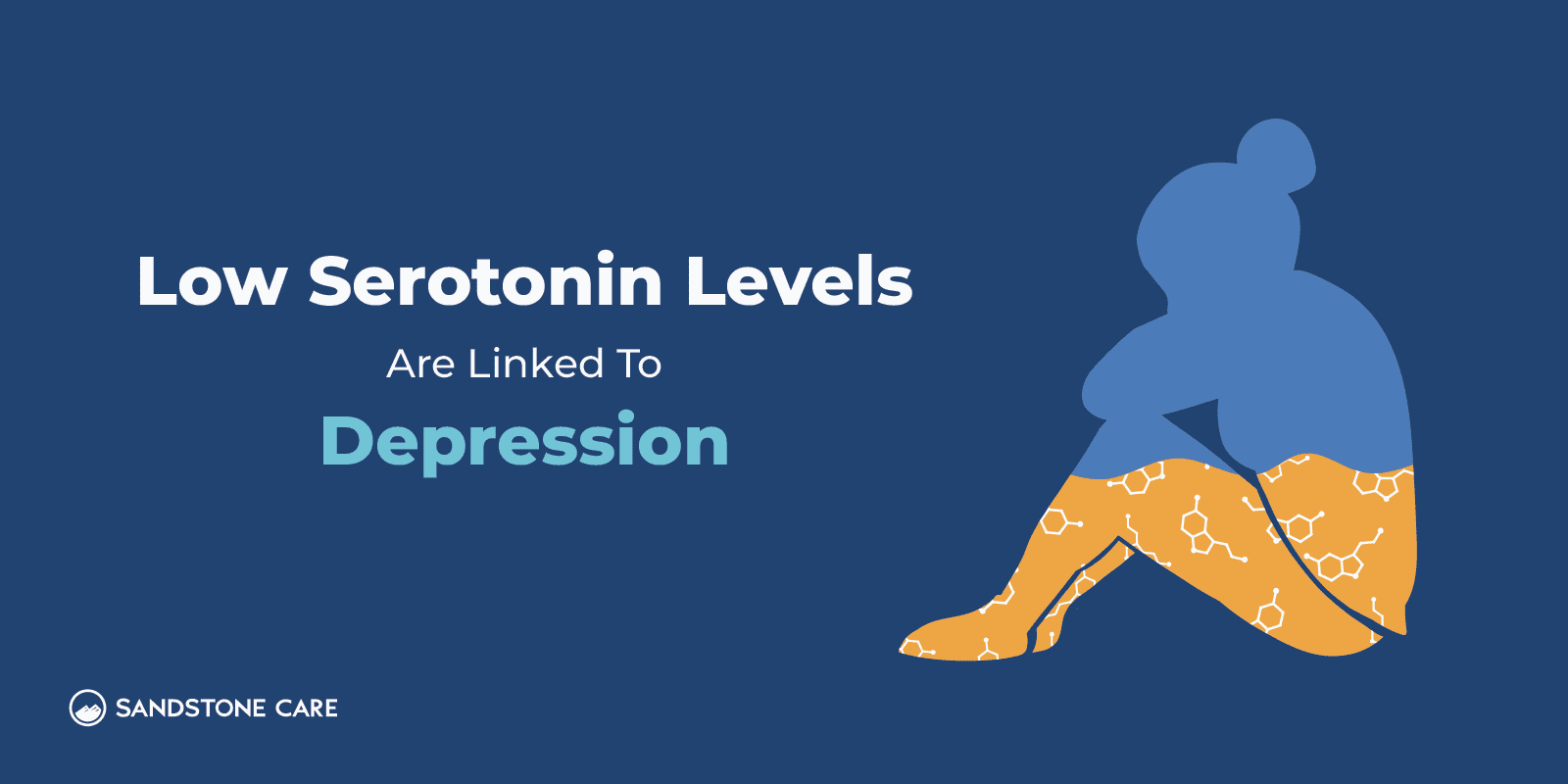
Serotonin plays a vital role in most major organ systems, including the cardiovascular, pulmonary, gastrointestinal, and central nervous systems.
While serotonin plays an important role in the brain and body, too much of it can be harmful.
It is important to consult with your doctor or healthcare provider on whether or not taking a medication with serotonin is safe for you.
Medications like selective serotonin reuptake inhibitors (SSRIs) may not be suitable for individuals who:
It is also important to let your doctor know of any medications you are taking in case it has an interaction with serotonin medications.
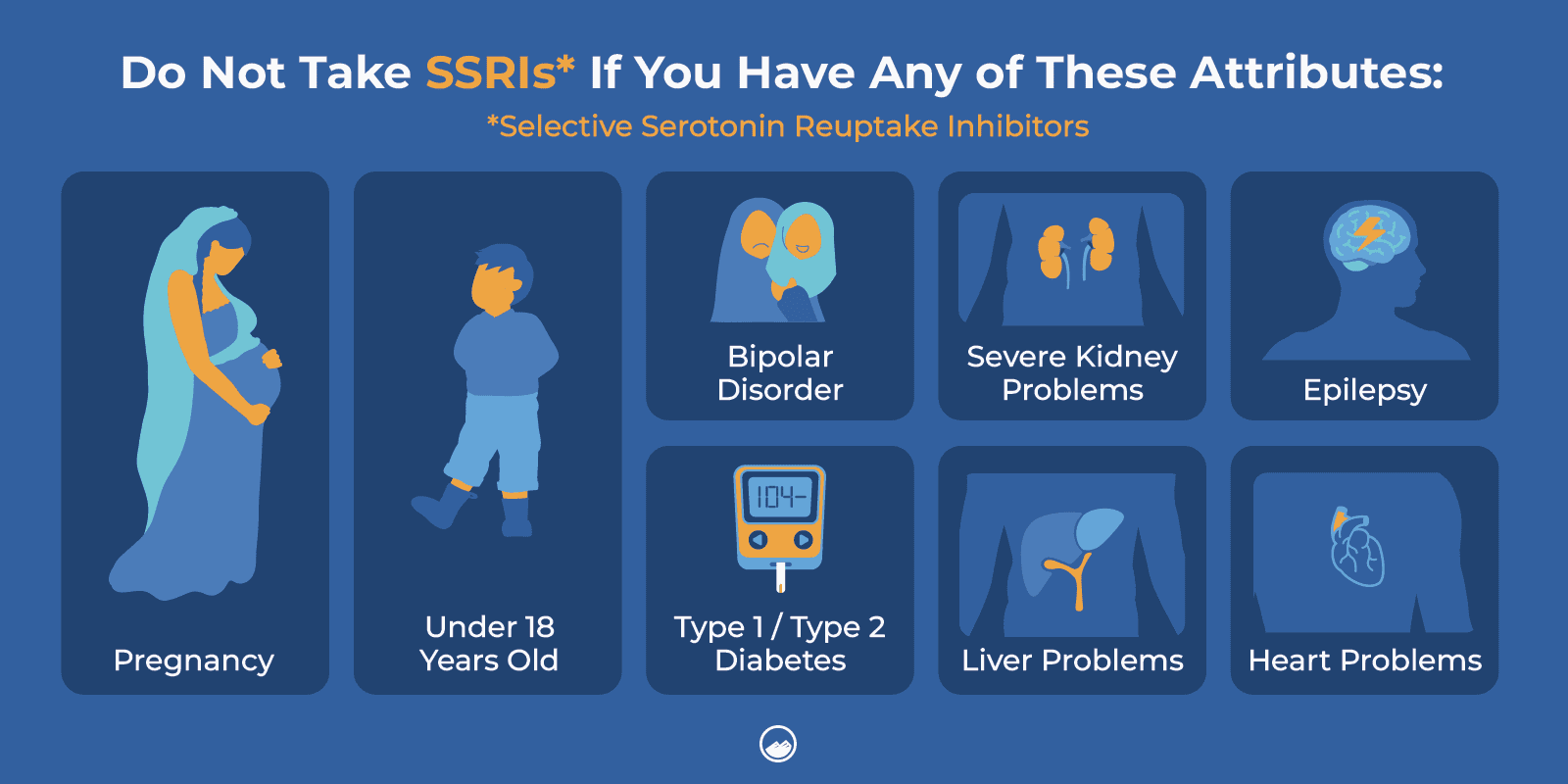
It is believed that 95% of the body’s serotonin is produced in the intestines.
Serotonin is produced with the help of an essential amino acid called tryptophan.
When absorbed into the blood, it is carried through the body.
Tryptophan is an essential amino acid that is used to make serotonin.
Regular exercise and body movement are the most commonly known way to release tryptophan and stimulate serotonin.
But, other factors may influence serotonin release, such as exposure to bright light and anti-inflammatory foods.
Eating other foods, like carbohydrates, may help allow more tryptophan to stay in the blood, impacting serotonin levels.
At least 30 minutes a day of regular exercise is recommended to help stimulate the release of tryptophan and boost serotonin, resulting in better mood and overall well-being.
For example, for individuals with seasonal affective disorder (SAD), sunlight and vitamin D plays an imperative role in low levels of serotonin, which leads to symptoms such as sad mood and low energy. These effects connect with the seasons and the short, dark days of winter.
Recent studies have looked into the idea that a night of sleep deprivation may cause an increase in serotonin levels.
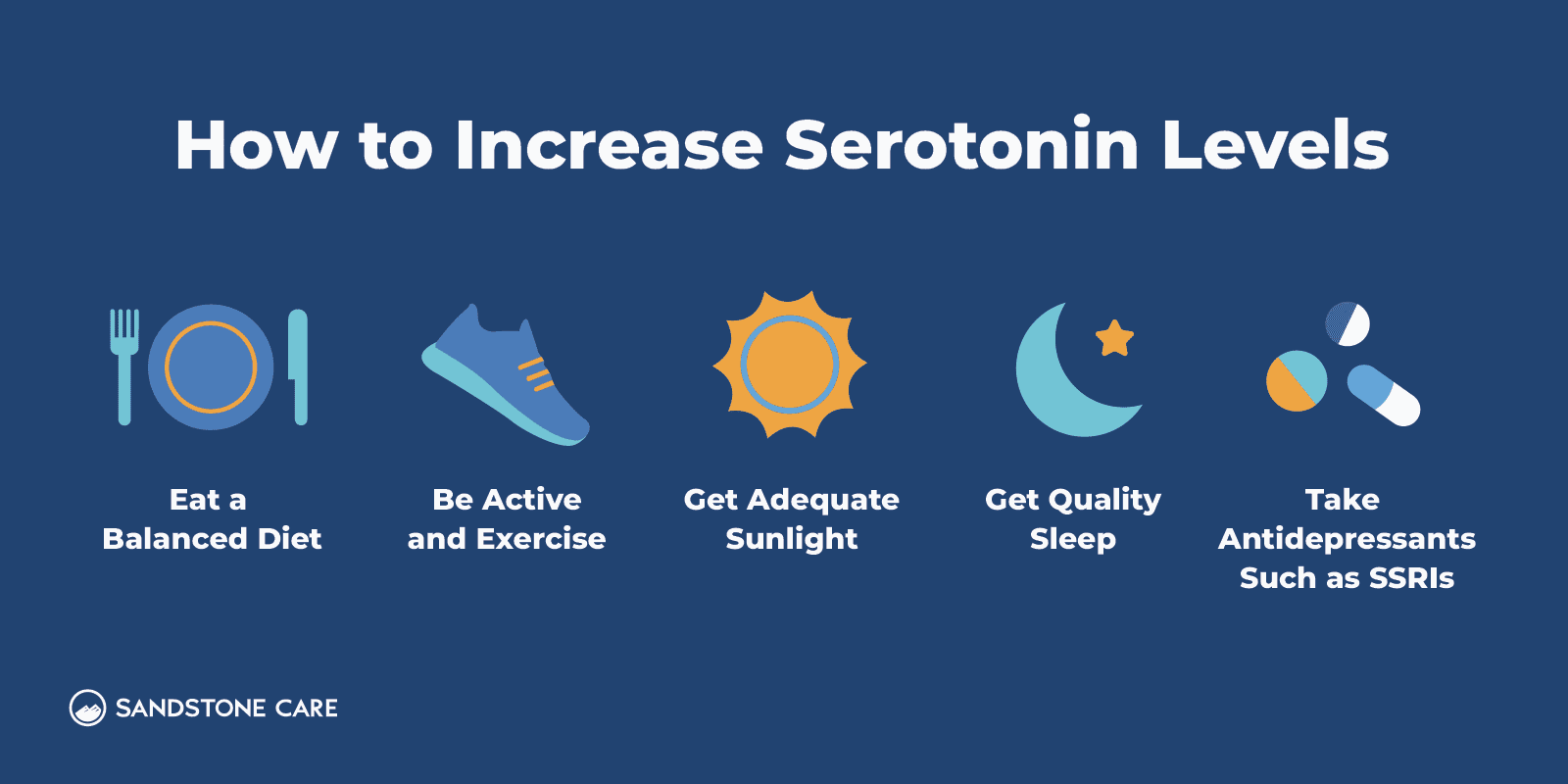
Multiple factors can lead to a lowered level of serotonin, including:
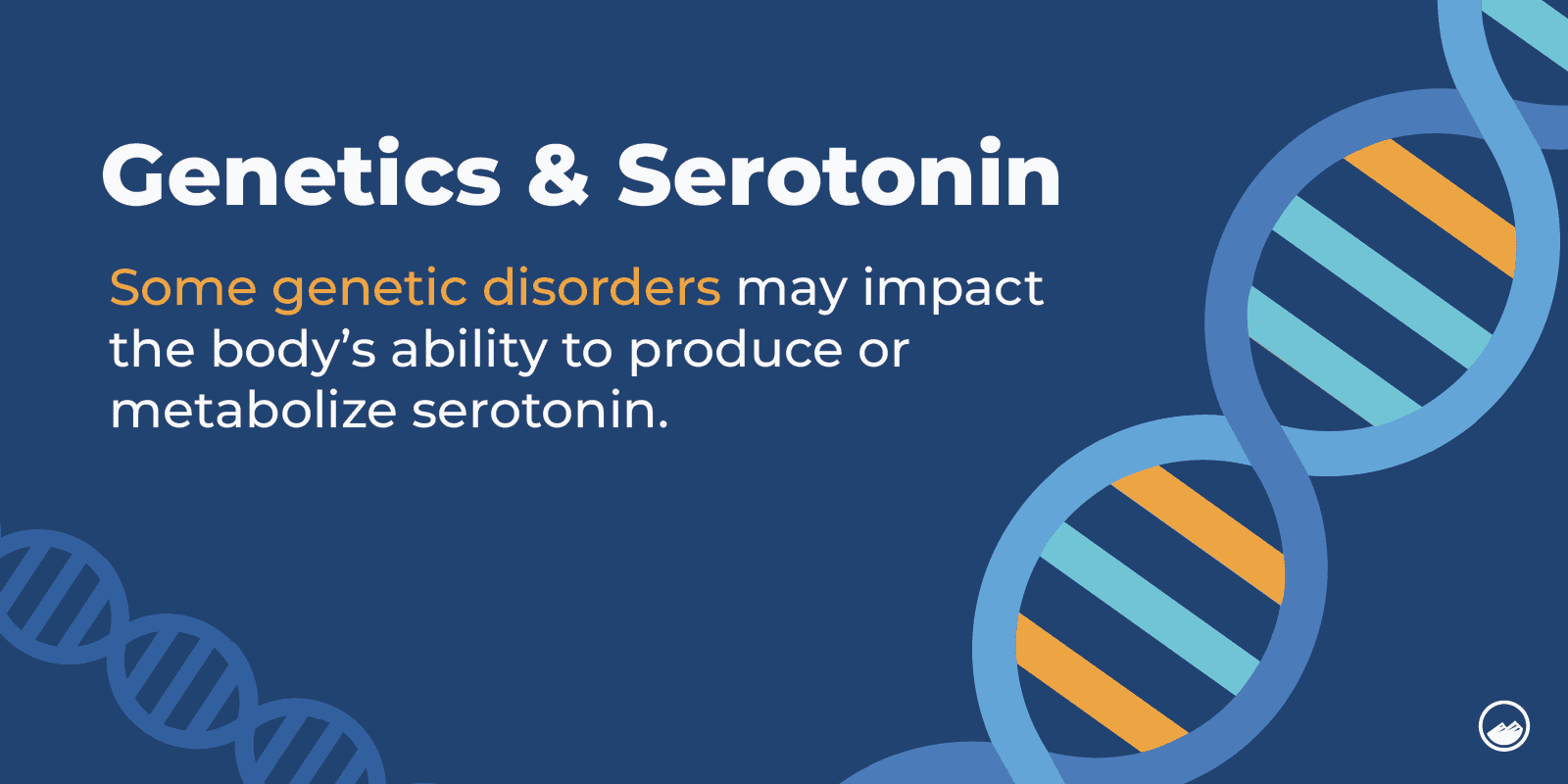
Common signs of low serotonin levels can include:
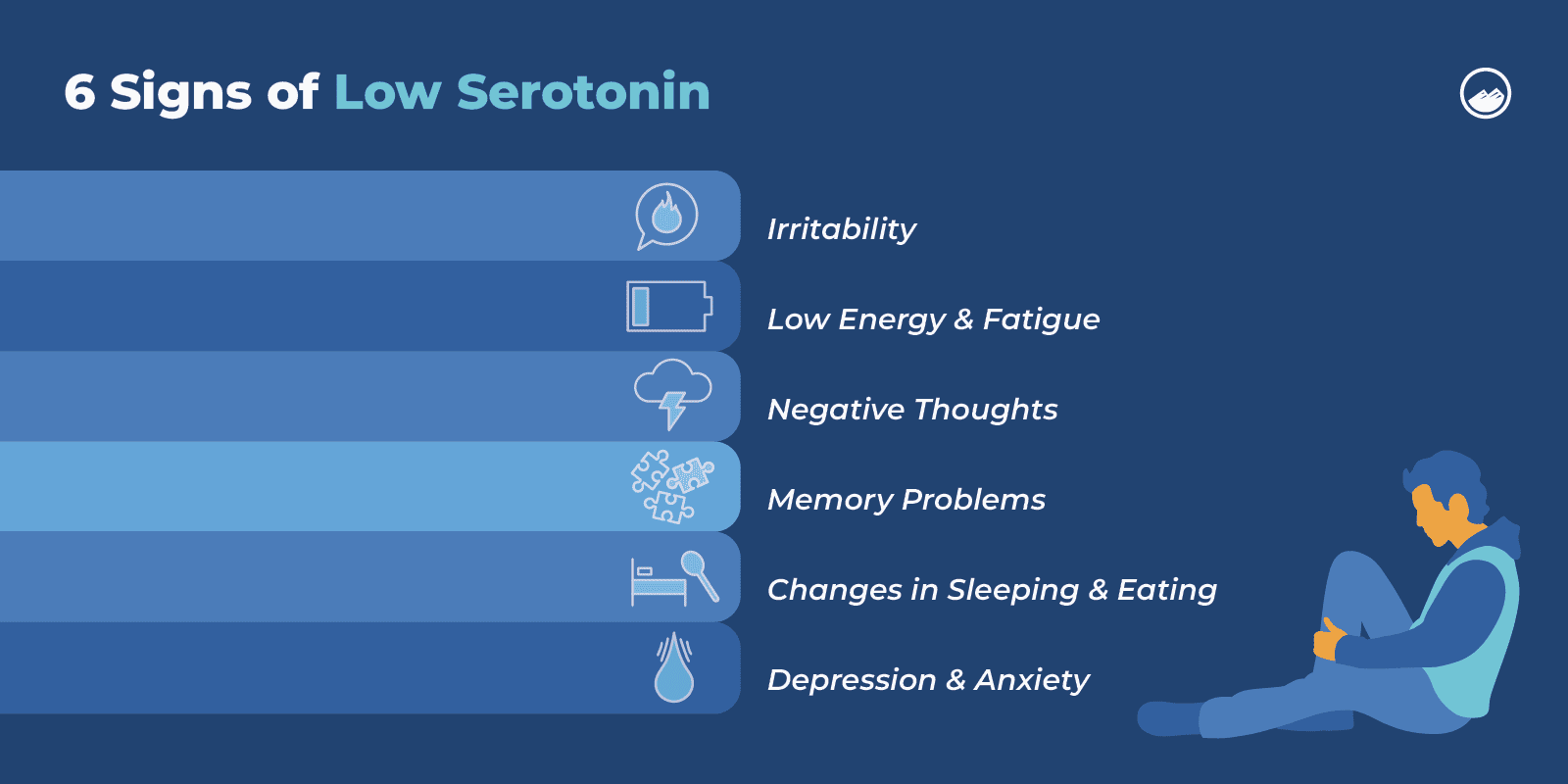
Low serotonin levels can be linked to a variety of different physical and mental health conditions.
Most commonly known is the association between low serotonin levels and depression. But this can also include anxiety, attention deficit hyperactivity disorder (ADHD), suicidal thoughts, and post-traumatic stress disorder (PTSD).
If you or a loved one are experiencing suicidal thoughts, seek help and know you are not alone. Call the National Suicide Prevention Lifeline at 988 or call 911.
Other problems associated with low serotonin levels include appetite issues, eating disorders, obesity, diabetes, cardiovascular disease, and irritable bowel syndrome.
A doctor can order blood tests that check serotonin levels in the blood.
If your doctor suspects that the symptoms you are experiencing are related to your serotonin levels, they will do a 5-HT test or a 5-HIAA test.
Serotonin deficiency can be improved and managed through natural remedies such as eating a balanced diet, exercising regularly, and getting adequate sunlight.
However, if needed, some medications like antidepressants and selective serotonin reuptake inhibitors can also help individuals with serotonin deficiencies.

Sometimes our bodies don’t produce enough serotonin to support our brain and physiological systems. When this happens, there are easy ways we can support our bodies and encourage them to produce an optimal level of the hormone. Natural ways to increase serotonin include:
There are a number of different massages you can try including deep tissue, Swedish, hot stone, Thai, Shiatsu, acupressure, and aromatherapy. Each has different techniques and benefits to leave you feeling happy and stress-free.
Try experimenting with different stress management strategies to see which work best for you.
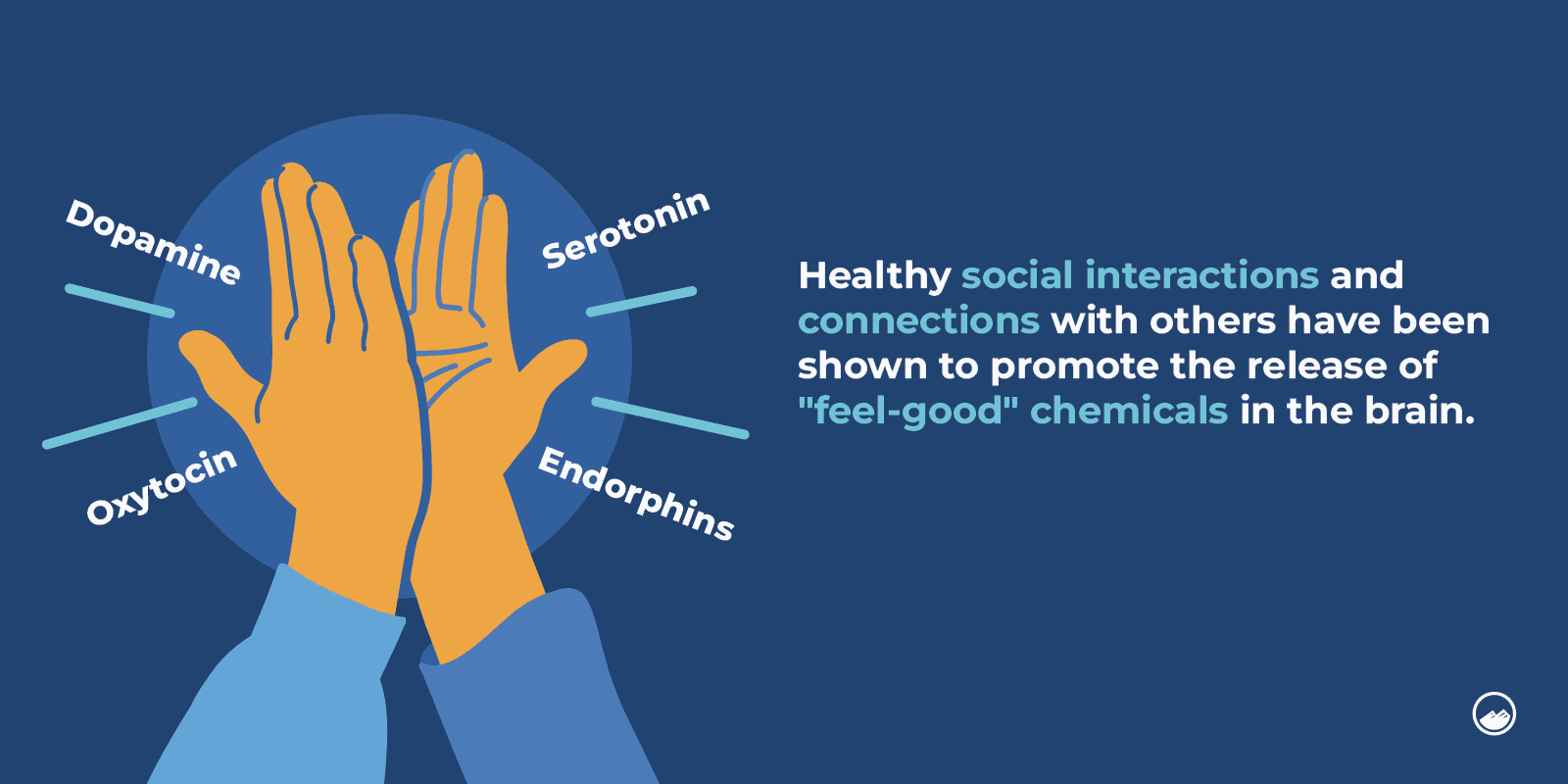
Changing your diet is another great way to increase serotonin naturally. Try incorporating these natural serotonin boosters into your daily meals:
Many foods today are high in trans fats, such as potato chips and fast food, which are inflammatory and linked to decreased serotonin levels.
Additionally, alcohol consumption can negatively impact the way the brain produces serotonin and impacts serotonin levels. Abstaining from drug and alcohol use can help a person rebalance their levels.
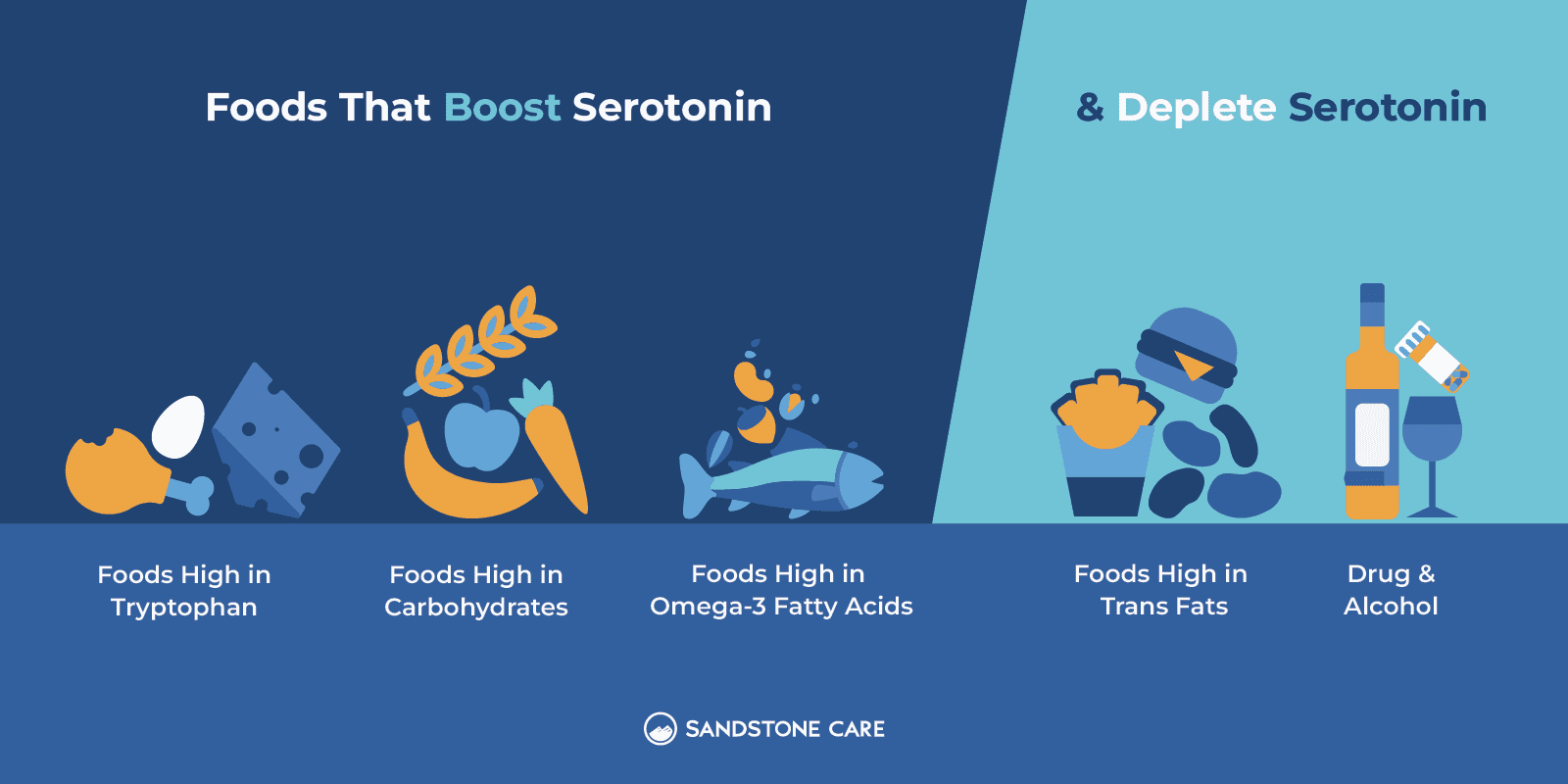
5-HTP is a dietary supplement that is used to help increase serotonin levels in the brain.
According to MedlinePlus, 5-HTP is possibly effective for depression and may work as well as some antidepressant drugs.
5-HTP does come with some potentially negative side effects, so it is important to consult with your healthcare provider if you plan on taking it to make sure it is safe for you and does not interact with any other medications or supplements you may be taking.
Two other common supplements used for serotonin include St. John’s Wort and omega-3 fatty acids.
If you are planning on taking serotonin supplements, you should consult with your doctor first on whether or not it is safe for you.
Some supplements that work for certain people may not work for others.
Some of the most common herbal supplements thought to increase serotonin levels may include St. John’s Wort, green tea, turmeric, and ginseng.
However, although they are herbal supplements, it is important to get advice from your doctor or healthcare provider on whether or not these supplements are safe for you.
It works by increasing the production of serotonin in the brain and central nervous system.
Light boxes are used as a therapeutic approach for certain depressive disorders and deliver a dose of bright light to help treat and manage symptoms of seasonal affective disorder by triggering the release of serotonin.
In these studies, bright light produces greater results than dim light, and morning light produces greater results than evening light.
It can help relieve stress, manage anxiety, reduce irritability, and increase the production of dopamine, serotonin, and oxytocin.
The stimulation of blood flow through massage therapy plays a role in releasing endorphins, serotonin, and dopamine and also lowers cortisol levels in the body, according to the International Journal of Neuroscience.
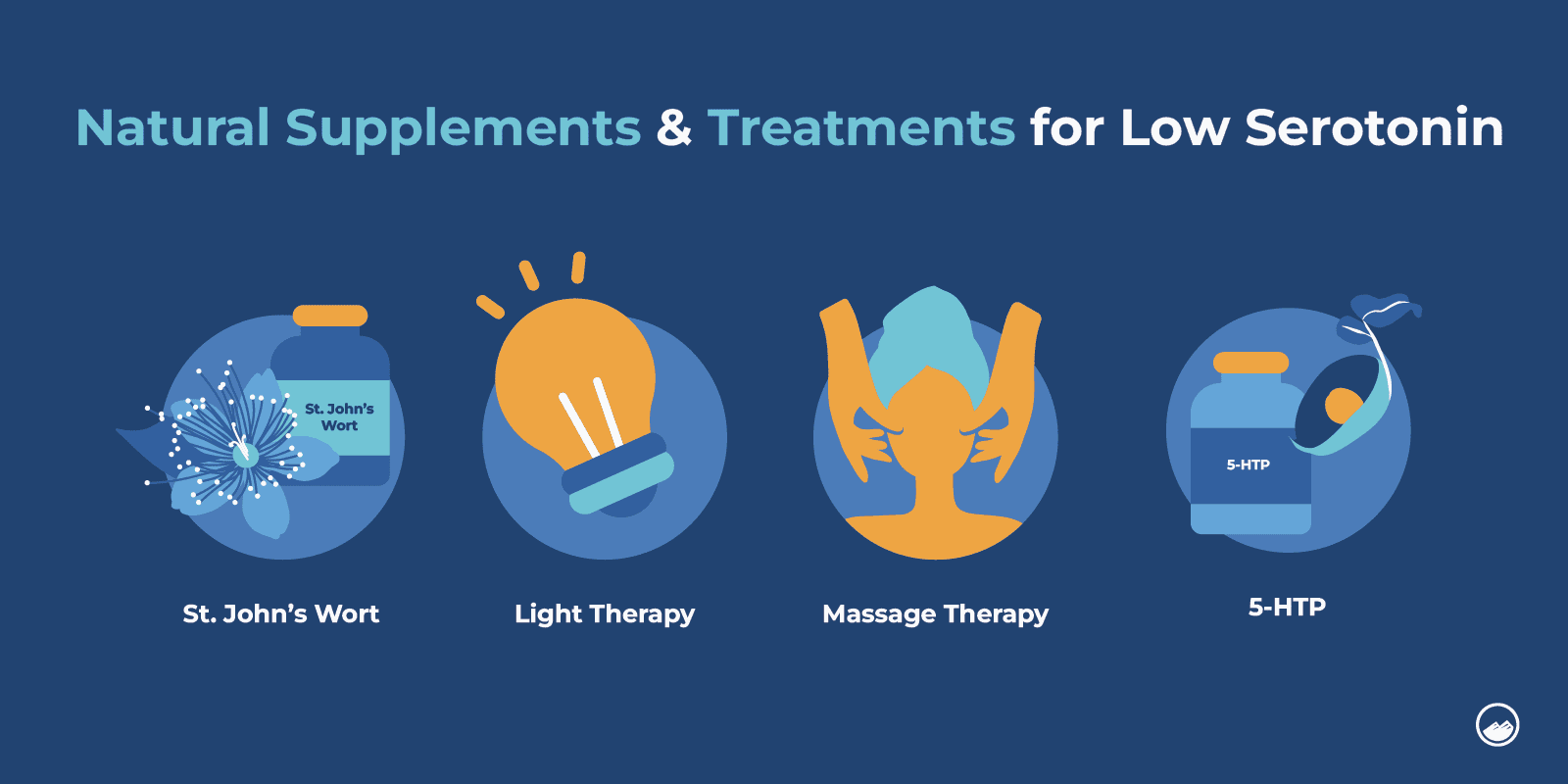
FAQ
Our goal is to provide the most helpful information. Please reach out to us if you have any additional questions. We are here to help in any way we can.
When serotonin levels are balanced, it helps to regulate a number of different processes and a person’s mood and allows them to be stable, calmer, and happier.
However, too much serotonin can become problematic and lead to mild or severe symptoms.
Serotonin syndrome is a potentially life-threatening condition that is caused by drugs that cause too much serotonin in the brain.
Symptoms of serotonin syndrome can include:
Serotonin syndrome can happen to a person of any age and is most commonly caused by the use of serotonergic agents like SSRIs.
A person is at increased risk of developing serotonin syndrome if they:
If you think you or a loved one may have serotonin syndrome, call your doctor right away, go to the emergency room, or call 911 if it is an emergency.
Going outside and getting sunlight or being in bright light can help trigger the release of serotonin and is one of the most common, natural ways to boost serotonin.
Many individuals with mental health conditions like depression and anxiety, or individuals who are experiencing stress, find it relieving and mood-boosting to get sunlight when they are feeling down, anxious, or stressed.
Common signs that you may have a serotonin or dopamine deficiency can include:
Many of these signs can also be indicators of other underlying health problems, so if you are experiencing any of these symptoms, it is important to reach out for help from your healthcare provider or a mental health professional.
The most common and effective ways to increase both serotonin and dopamine naturally are by:
According to Sleep Medicine Reviews, serotonin plays a role in promoting wakefulness and inhibiting rapid eye movement (REM) sleep.
In other words, serotonin can impact a person’s sleep habits, like how well and how long they sleep.


Serotonin plays an important role in both the brain and body. Unbalanced levels of serotonin can lead to physical and mental health problems. Sandstone Care is here to support teens and young adults with mental health and substance use disorders. Call (888) 850-1890.